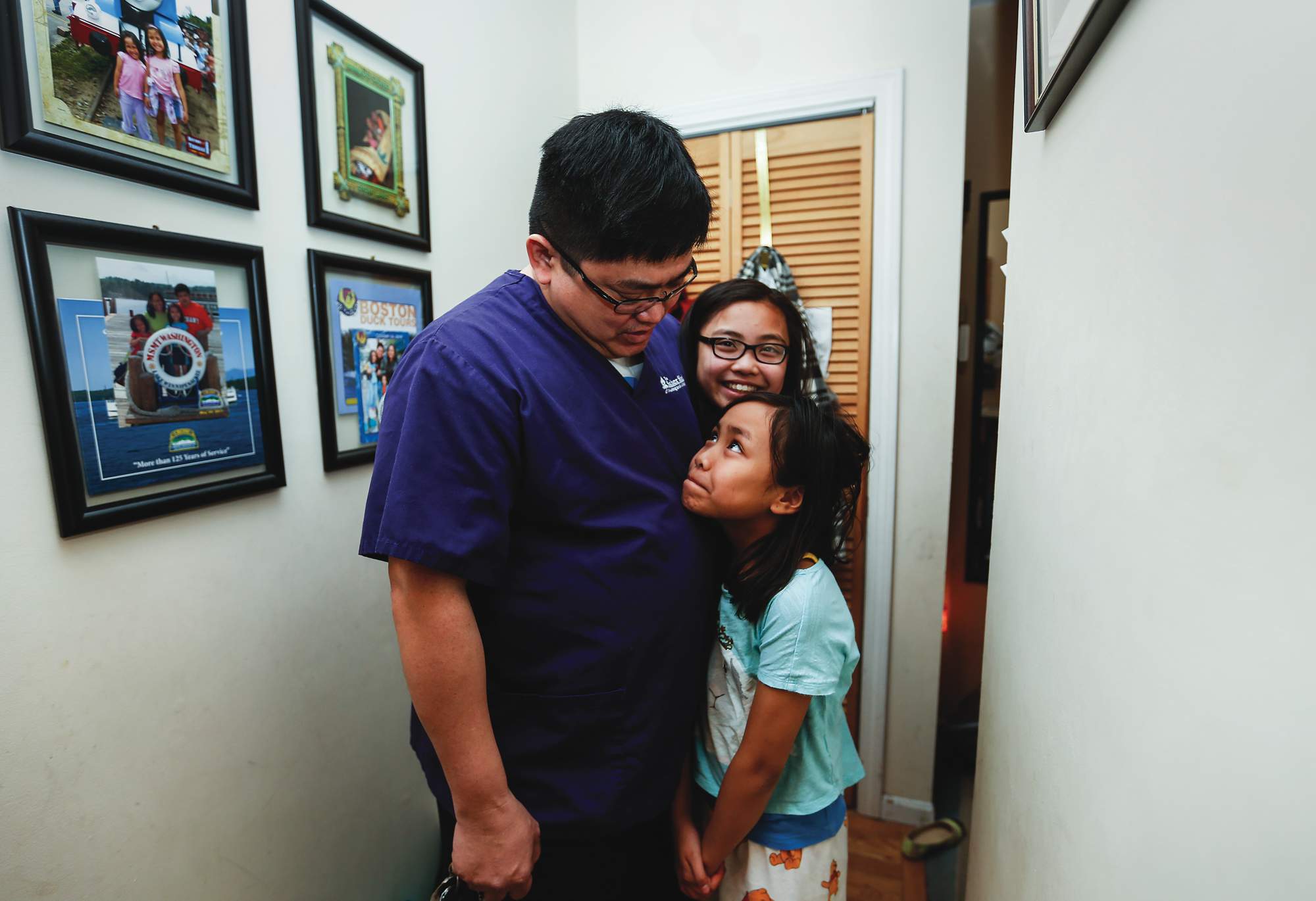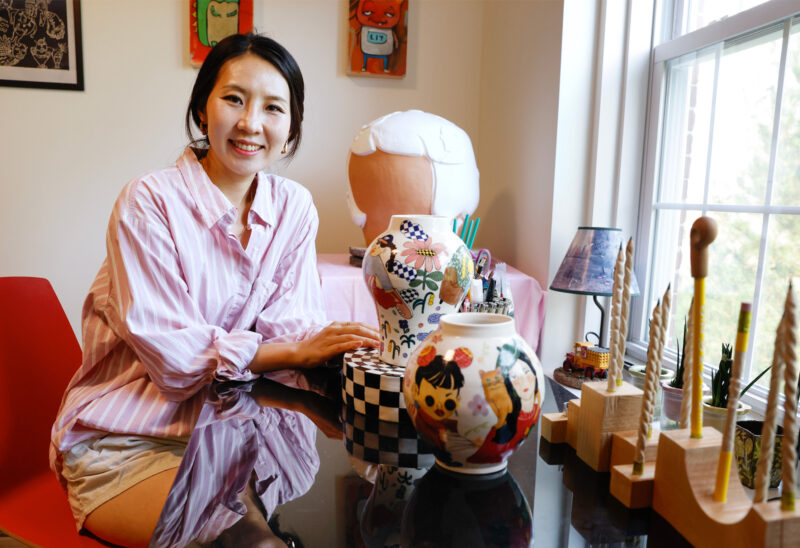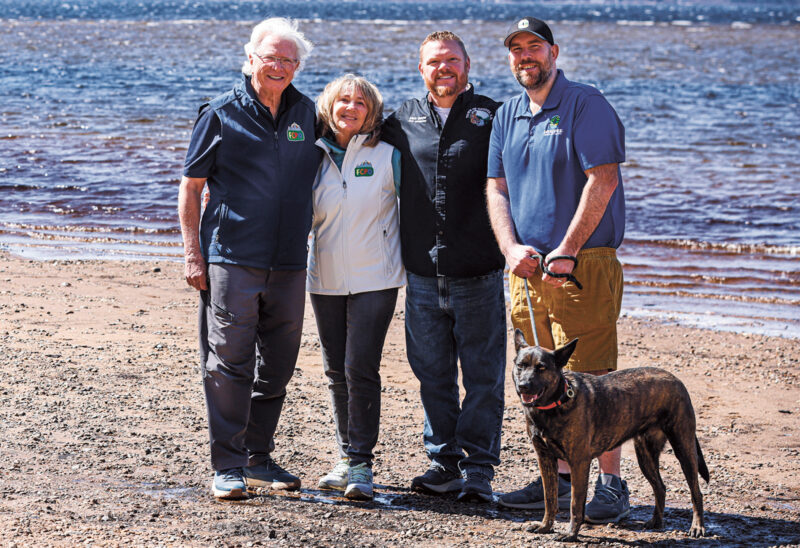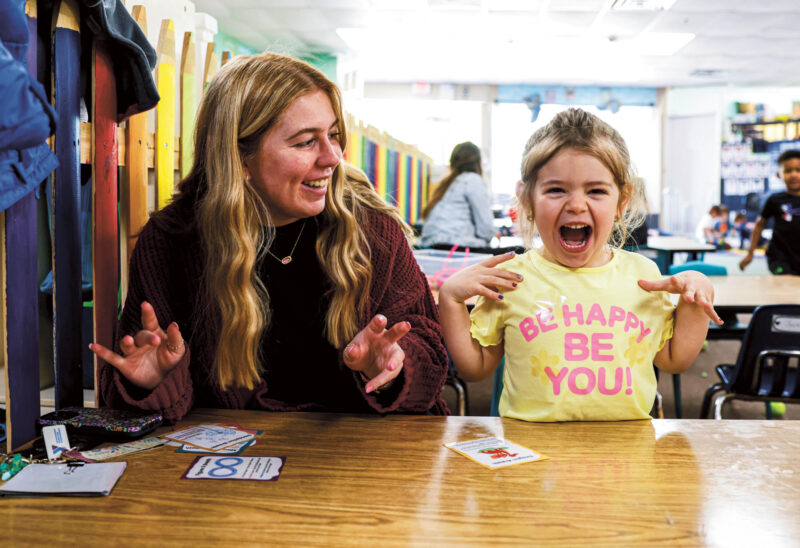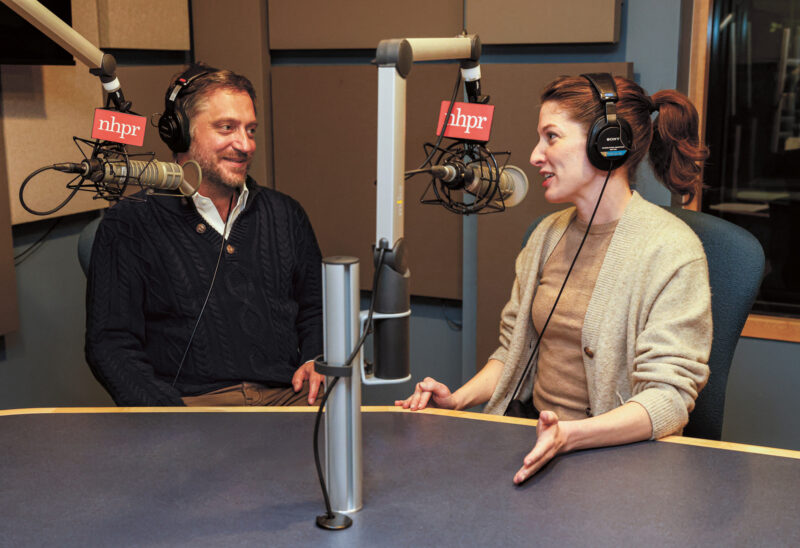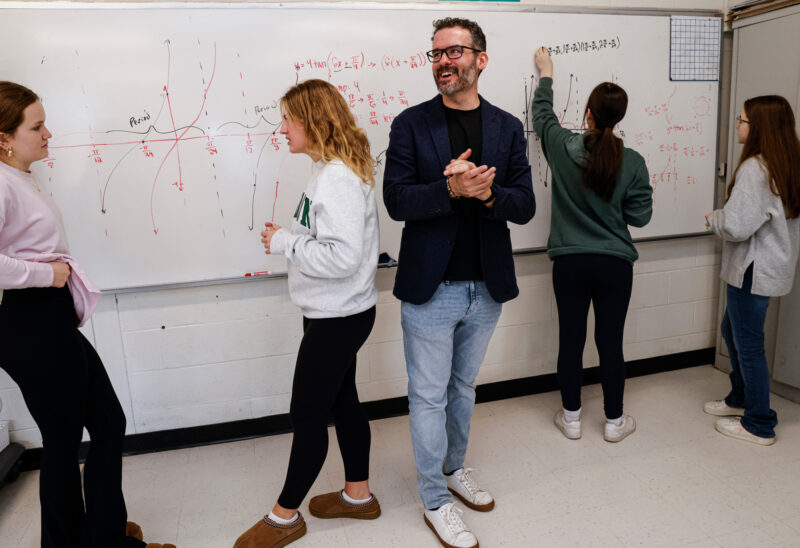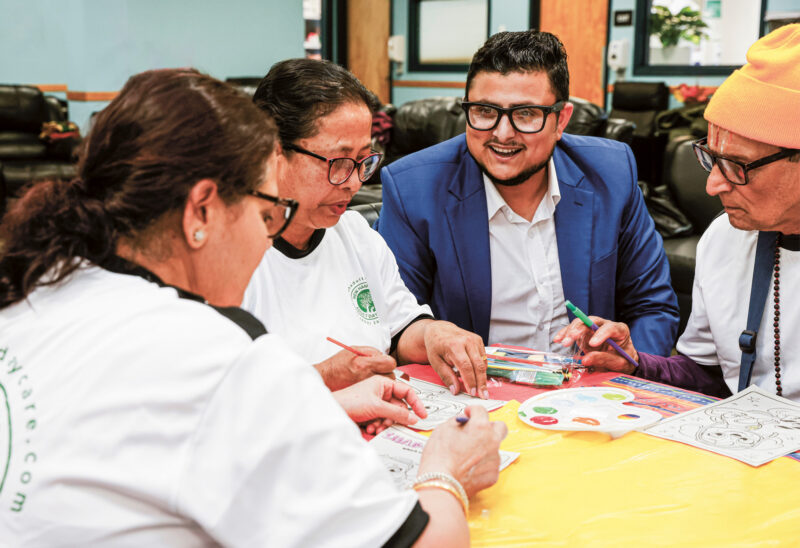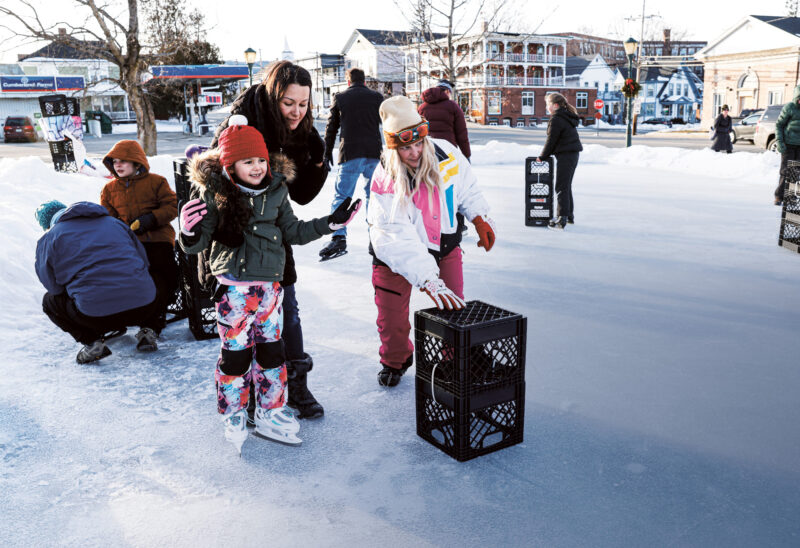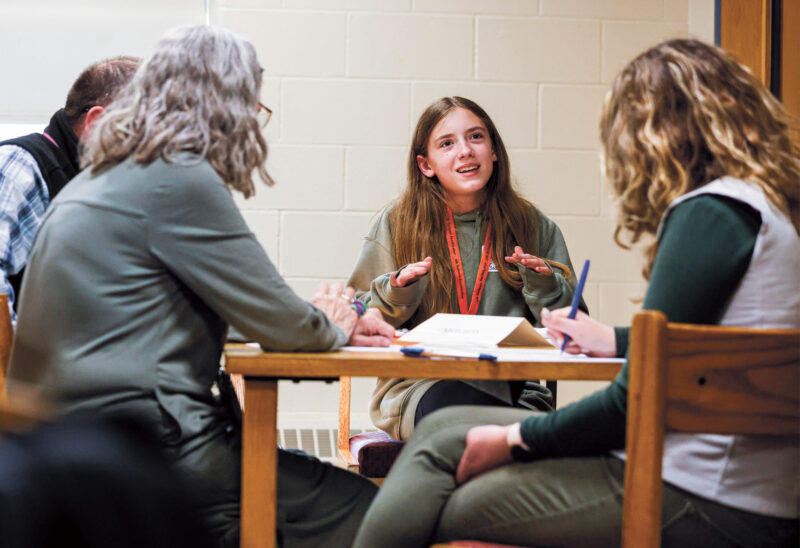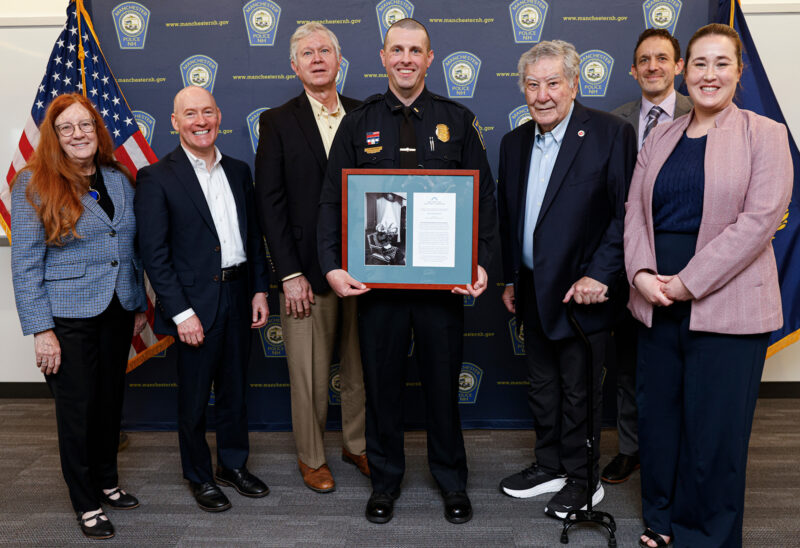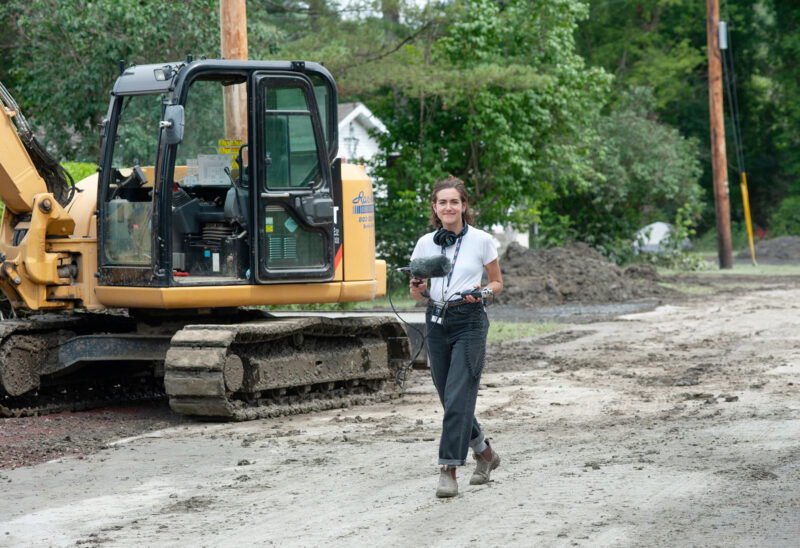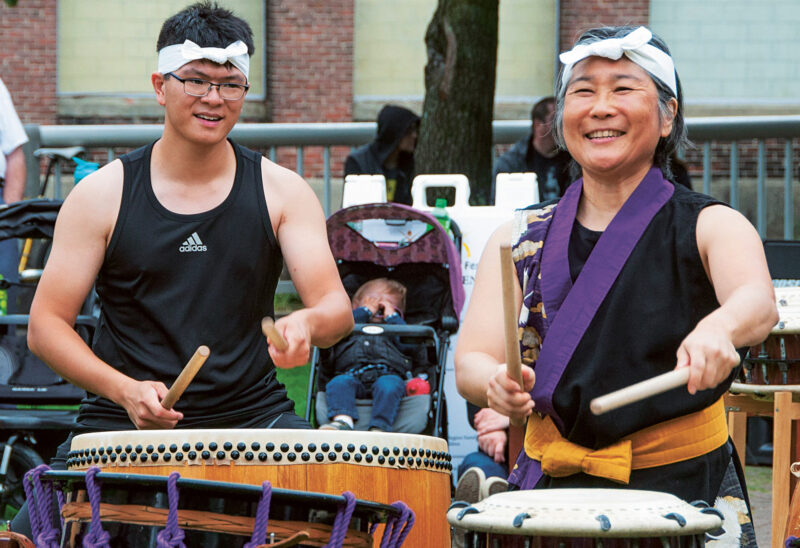Gerie Pingol is a mechanical engineer who was born in Manila, in the Philippines. His wife, Marivic, is a financial analyst with a master’s degree. Their daughters, Catherine and Christine, are honor roll students in their Laconia elementary school.
The family immigrated to the U.S. when Marivic was recruited for a job with a U.S. firm. Gerie had trouble finding work in his field, so he worked in fast food and retail, and went to school to become a licensed practical nurse. He has an affinity for caring for the elderly.
“I want for the community to embrace us as an asset,” Gerie Pingol said.
A new initiative of the Endowment for Health is working to make sure that newcomers to New Hampshire are welcomed and integrated into their communities. When people are more connected to their communities, they are healthier and better able to realize their full potential — and those communities are healthier and more economically vibrant as well.
The Immigrant Integration Initiative has projects underway in Laconia, Nashua, Manchester and Concord — working with community members and leaders, nonprofits, faith groups, employers and schools. The Foundation is supporting the initiative, which seeks to bolster the whole state.
“The collective health of our people and the health of our economy depend on us welcoming immigrants into the state, enabling them to realize their full potential,” said Endowment for Health President Steve Rowe.
Foreign-born immigrants represent just six percent of New Hampshire’s population, but — as the state ages and its population growth has slowed dramatically — are an important part of our civic, cultural and economic future.
“The Foundation believes that we need to invest in all Granite Staters to help strengthen New Hampshire communities,” said Anne Phillips, Foundation Director of Grantmaking.
Some of the foreign-born population are refugees whom the United States has welcomed from conditions of extreme hardship. Others, like the Pingols, simply chose to immigrate.
“These families need to do well in order for their children to do well,” said EH program director Kelly Laflamme. “We need to make sure that all of our kids are prepared for the future.”
Many immigrants to New Hampshire hold well-paying positions in skilled fields. (Nearly 58 percent of New Hampshire’s foreign-born residents have attended some college, compared with 52 percent of people born here.)
“All of my doctors are immigrants,” said Laconia mayor Ed Engler, who is on his city’s committee for this initiative. “Every one of them.” Integrating and welcoming immigrants, Engler said, improves Laconia’s chance of “having a more dynamic economy.”
“The greater the number of industrious people you have residing and working in your community,” he said, “the better.”
In Laconia, Kate Bruchacova, originally from Slovakia, coordinates the project through the Lakes Region Partnership for Public Health. Her job has been dubbed a “walking welcome center.” She is helping immigrants to navigate everything from when to enroll their children in school to how to set up a medical appointment; she is working with employers to understand labor needs, helping people to connect with educational opportunities and creating community-wide opportunities for social connection.
Projects in Concord, Manchester and Nashua include everything from creating a “Civics Academy” to promoting social inclusion in schools and diversity in civic leadership, to working on language and employment training and access to transportation.
Bruchacova remembers arriving here for summer employment. Without a vehicle, she walked everywhere. When a local woman realized Bruchacova had walked eight miles to the library, she gave her a bicycle.
“People here in the community are so caring,” Bruchacova said. “And that’s what I want other people coming here to realize.”
Engler points out that Laconia, home to earlier waves of Irish and French-Canadian immigrants, has “a long, long history of multiculturalism.”
The Laconia project advisory board includes Pingol, a business owner from Austria, a Spanish teacher from Venezuela and a nursing student from Bhutan.
“I want the community to think of immigrants as an asset, not a liability,” Pingol said. “We want to use our strengths to improve the community.”
This story originally appeared in our 2014 Annual Report.

